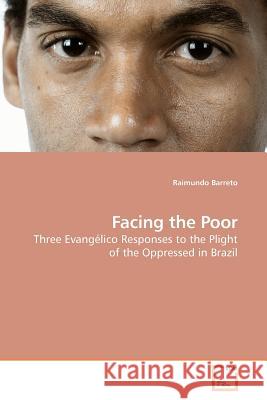Facing the Poor » książka
Facing the Poor
ISBN-13: 9783639177039 / Angielski / Miękka / 2009 / 314 str.
Progressive Evangelicos have received little attention from those studying Brazilian Protestantism. By focusing on this branch of Brazilian Protestantism, the author intends to contribute to the understanding of the socio-political relevance of the Evangelico presence in Brazil. Progressive Evangelico Christianity, which combines charismatic spirituality with socio-political progressive action, offers a valuable approach to Christian social ethics in contemporary Brazil that may lead to substantive transformation at both individual and social levels. The book presents specific Evangelico responses to the plight of the poor, coming from three different faces of Brazilian Protestantism: the Ecumenical face, the Evangelical face and the Pentecostal face. The guiding argument of this book is that the three faces present specific responses to realities of suffering, injustice and oppression in Brazil, and that when they are critically related with one another they complement each other in ways that are instrumental for the development of a Brazilian progressive Evangelico social ethics.
Progressive Evangélicos have received little attention from those studying Brazilian Protestantism. By focusing on this branch of Brazilian Protestantism, the author intends to contribute to the understanding of the socio-political relevance of the Evangélico presence in Brazil. Progressive Evangélico Christianity, which combines charismatic spirituality with socio-political progressive action, offers a valuable approach to Christian social ethics in contemporary Brazil that may lead to substantive transformation at both individual and social levels. The book presents specific Evangélico responses to the plight of the poor, coming from three different faces of Brazilian Protestantism: the Ecumenical face, the Evangelical face and the Pentecostal face. The guiding argument of this book is that the three faces present specific responses to realities of suffering, injustice and oppression in Brazil, and that when they are critically related with one another they complement each other in ways that are instrumental for the development of a Brazilian progressive Evangélico social ethics.











